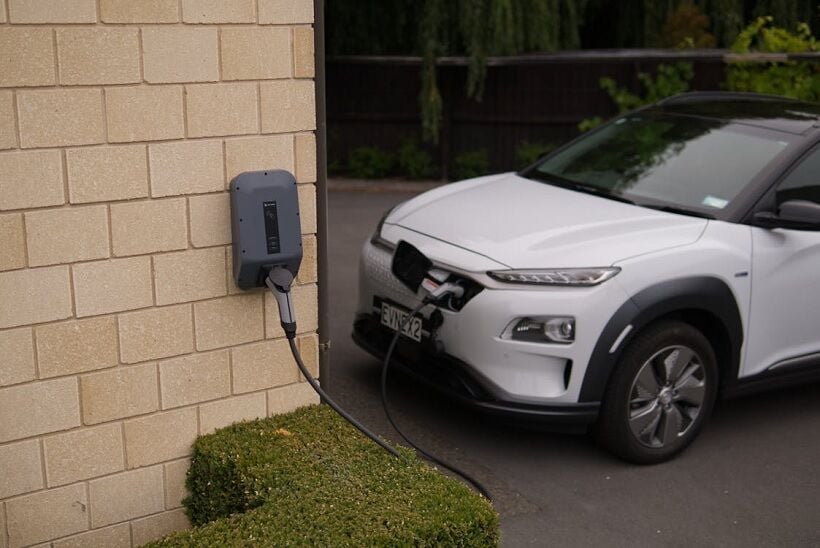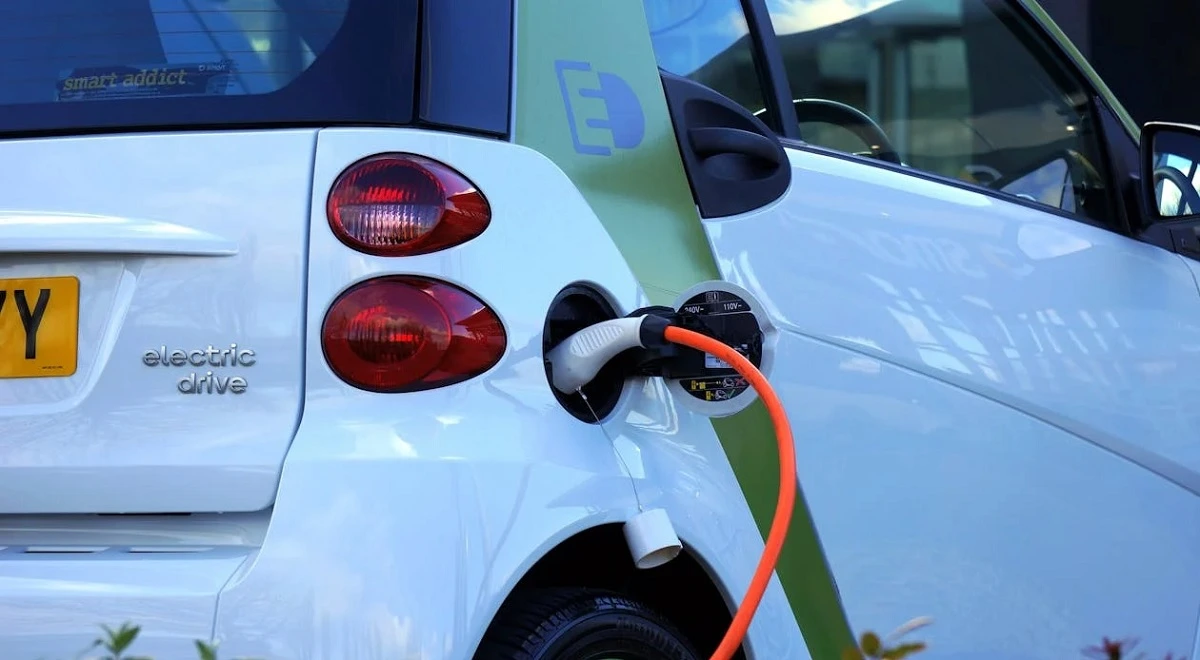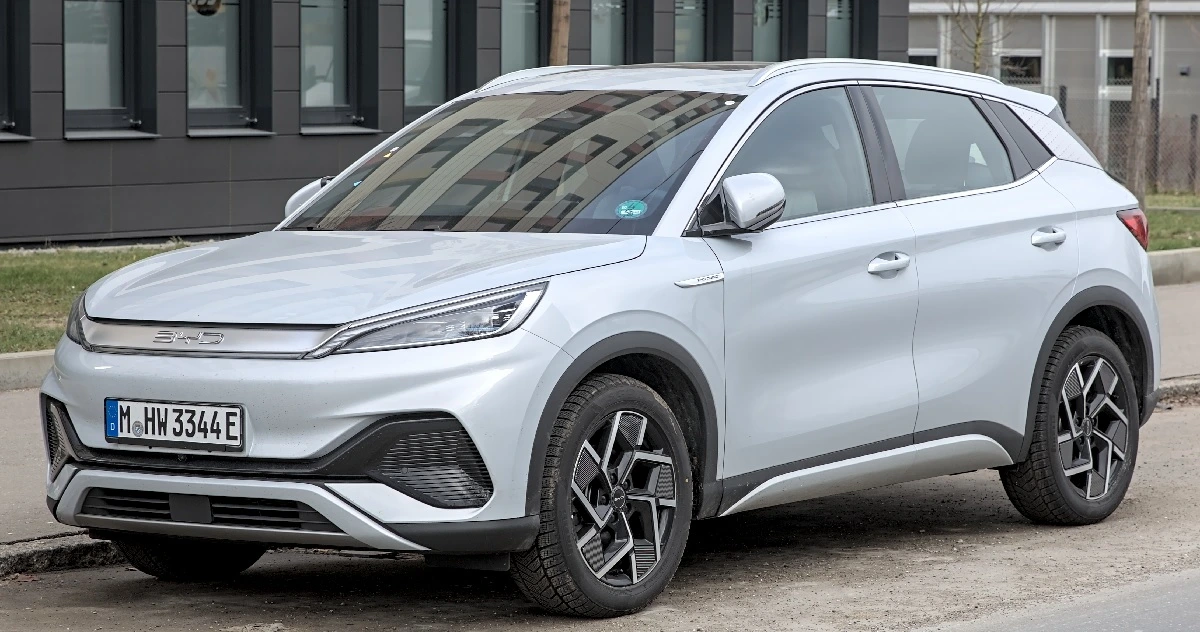The future of electric vehicles in Thailand

As of 2024, Thailand has approximately 150,000 electric vehicles (EVs) on the road. This figure reflects a significant increase from previous years, driven by government incentives and a growing consumer preference for sustainable transportation. The Thai government aims for 30% of all vehicles produced in the country to be electric by 2030, further encouraging the adoption of EVs. The rise in EV numbers is also supported by the expansion of charging infrastructure, which is essential for facilitating the transition to electric mobility in Thailand.
This article explores the future of electric vehicles in Thailand, detailing the current landscape, government policies, market trends, infrastructure development, and the challenges that lie ahead.
Overview of the Thai EV Market
Thailand’s electric vehicle (EV) market reflects a dynamic evolution with growing consumer interest and substantial government support. The advent of 2024 promises further momentum.
Current State of the Market
The electric vehicle market in Thailand has witnessed remarkable growth in recent years. By 2023, EV sales soared to approximately 76,000 units, accounting for 12% of total vehicle sales. This figure is expected to rise significantly, with forecasts suggesting that sales could double to 150,000 units in 2024, capturing around 20% of the market share. The Thai government has set ambitious targets under its “30@30” strategy, aiming for 30% of all vehicles manufactured by 2030 to be electric.
Key Statistics
| Year | EV Sales (Units) | Market Share (%) |
|---|---|---|
| 2021 | 9,000 | 2 |
| 2022 | 10,000 | 3 |
| 2023 | 76,000 | 12 |
| 2024 (Projected) | 150,000 | 20 |
Trends in EV Segments
Different EV segments demonstrate unique growth patterns. Battery electric vehicles (BEVs) lead the market, driven by decreasing battery costs and improving infrastructure. Hybrid electric vehicles (HEVs) also remain popular, offering a transitional solution for consumers. Plug-in hybrid electric vehicles (PHEVs) present another segment, although their adoption lags behind BEVs and HEVs due to higher costs. Demand for electric motorcycles is also rising as they become a cost-effective urban transportation solution.
Opportunities for growth

Government incentives and subsidies
Government incentives and subsidies play a crucial role in fostering electric vehicle (EV) adoption in Thailand. Key initiatives include tax reductions, import duty exemptions, and grants for EV manufacturers. These measures aim to lower the cost barrier for consumers and companies. The Electric Vehicle Association of Thailand (EVAT) plans further incentives to encourage local production and reduce reliance on imports.
Growing demand for sustainable transportation
There’s a rising demand for sustainable transportation, driven by increasing environmental awareness among Thais. The shift towards greener options is evident in the rapid growth of EV sales. With over 5,000 units sold in 2022, it’s clear that consumers seek eco-friendly alternatives. Public awareness campaigns, supported by the government, further accentuate this shift.
Investment opportunities in the EV industry
The Thai EV industry offers lucrative investment opportunities, particularly in battery production, charging infrastructure, and R&D. Major automakers, including MG and Nissan, have already capitalised on this potential. Local and foreign investors are showing heightened interest as Thailand aims for 30% of automotive production to be electric by 2030. As the market grows, ancillary businesses like EV component suppliers and maintenance services also present viable investment avenues.
International policy orientation
Thailand aligns its EV policy with international standards to attract more global players. The country is part of regional agreements focusing on sustainable practices and emissions reduction. Aligning with these policies not only enhances Thailand’s regulatory framework but also simplifies the entry for foreign investors and automakers. This alignment ensures that the Thai EV market remains competitive and attractive on the global stage.
Challenges facing the EV market
Despite positive trends and government support, several challenges could hinder the rapid adoption of electric vehicles in Thailand:
- High upfront costs: The initial cost of electric vehicles remains a barrier for many consumers.
- Limited charging infrastructure: While expansion plans are underway, many rural areas still lack adequate charging stations.
- Raw material dependency: Thailand’s reliance on imported raw materials like lithium and nickel could affect local production costs.
Which country is leading in EVs?

As of 2024, Thailand has approximately 150,000 electric vehicles (EVs) on the road. This figure reflects a significant increase from previous years, driven by government incentives and a growing consumer preference for sustainable transportation. The Thai government aims for 30% of all vehicles produced in the country to be electric by 2030, further encouraging the adoption of EVs. The rise in EV numbers is also supported by the expansion of charging infrastructure, which is essential for facilitating the transition to electric mobility in Thailand.
Which Chinese EV companies are in Thailand?
- BYD: BYD has opened its first factory in Southeast Asia in Rayong, with an annual production capacity of 150,000 vehicles. This facility marks a significant investment in the region and aims to cater to both domestic and export markets.
- GAC Aion: A subsidiary of GAC Group, GAC Aion has also opened a factory in Thailand, with plans to produce 50,000 vehicles annually. This facility supports Thailand’s goal of becoming an EV manufacturing hub.
- Chery Automobile: Recently granted promotional privileges, Chery plans to establish a factory in Rayong to produce battery electric vehicles (BEVs) and hybrid electric vehicles (HEVs), targeting an initial capacity of 50,000 units per year.
- Great Wall Motor (GWM): GWM operates two full-production lines in Thailand and is focused on localizing its production to enhance its market presence.
- SAIC Motor: Known for its MG brand, SAIC has localized parts of its production in Thailand and is expanding its operations through partnerships with local companies.
- Changan Automobile: Changan is set to produce EVs locally from 2025, having announced partnerships with Thai parts manufacturers.
- Neta: This brand is gaining traction in the Thai market, contributing to the increasing market share of Chinese EVs.

Thailand has a growing presence of electric cars. The country is actively promoting electric vehicle adoption through various government initiatives and incentives aimed at making EVs more accessible. With increasing consumer interest and investments from manufacturers, Thailand is positioning itself as a key player in the Southeast Asian electric vehicle market.
EV charging stations in Thailand
As of December 2023, Thailand has approximately 2,658 EV charging locations equipped with a total of 9,694 charging units. This robust charging infrastructure is essential for supporting the growing adoption of electric vehicles in the country.
Major EV charging providers
- EA Anywhere: Operated by Energy Absolute, EA Anywhere has over 100 charging stations across Thailand, offering standard and fast charging options compatible with all vehicle brands.
- PTT EV Station PluZ: Operated by the Petroleum Authority of Thailand (PTT), this initiative has around 50 EV charging stations under the “Blue Point” project, with plans for further expansion.
- MEA EV: Operated by the Metropolitan Electricity Authority, MEA EV focuses on providing charging services in Bangkok and nearby provinces, with 11 service points within their office and 2 additional points located outside.
- EGAT EV: Operated by the Electricity Generating Authority of Thailand (EGAT), EGAT EV currently has 42 charging services available throughout the nation.
- EVolt: EVolt offers a network of accessible and efficient charging stations, supporting Thailand’s transition towards sustainable transportation.
Charging station locations
EV charging stations are available at various locations, including shopping malls, PTT gas stations, and government offices. Some notable examples include:
- CentralWorld
- Central Phuket Festival
- Central Rama 2
- PTT gas stations
- Metropolitan Electricity Authority office
The Thai government aims to further enhance the charging network to ensure accessible charging facilities across urban areas and along major highways. The National Electric Vehicle Policy Committee has set a goal to increase the number of EV charging stations to 12,000 by 2030, supporting the country’s vision of becoming a Southeast Asian hub for electric vehicles.
Incentives for EVs in Thailand
| Incentive Type | Description |
|---|---|
| Subsidy for EV Cars | – THB 50,000 for EVs with battery units below 50 kWh and a retail price under THB 2,000,000. – THB 100,000 for EVs with battery units exceeding 50 kWh. |
| Excise Tax Reduction | – Reduction from 8% to 2% on all EVs, including those priced between THB 2,000,000 and 7,000,000. |
| Customs Tax Reduction | – Reduction of customs taxes by up to 40% for imported EVs. |
| Manufacturing Mandates | – For every imported EV, manufacturers must produce two EVs locally by the end of 2026 or 2027. |
| Subsidy for Electric Motorcycles | – THB 10,000 subsidy for electric motorcycles priced under THB 150,000, with an excise tax reduction of 1%. |
The most popular EV car in Thailand

The most popular electric vehicle (EV) in Thailand is the BYD Atto 3, which has gained significant traction since its introduction. Launched in October 2022, the Atto 3 quickly became a bestseller, with over 12,500 units sold in 2023 alone. This compact crossover SUV, also known as the Yuan Plus in other markets, is manufactured by BYD Auto, a leading Chinese EV manufacturer. Apart from this, there are also many trending EV cars currently available in Thailand which can be considered.
Key features of the BYD Atto 3
- Design and Build: The Atto 3 features a modern design with a spacious interior, inspired by fitness culture. It includes aesthetics resembling gym equipment, enhancing its appeal to health-conscious consumers.
- Powertrain: The vehicle is equipped with a permanent magnet synchronous electric motor that delivers 150 kW (approximately 201 hp). It offers a smooth driving experience with front-wheel drive.
- Battery Options: The Atto 3 is available in two battery variants: a Standard Range model with a 49.9 kWh battery and an Extended Range model with a 60.4 kWh battery. This allows for flexibility depending on consumer needs and preferences.
- Infotainment System: The car features a 12.8-inch infotainment system that operates on Android, capable of rotating between portrait and landscape orientations. An optional larger 15.6-inch screen is also available.
- Cargo Space: The Atto 3 offers ample cargo capacity, with 440 litres of boot space that expands to1,338 litres when the rear seats are folded down.
Market impact
The success of the BYD Atto 3 in Thailand can be attributed to several factors:
- Government Support: The Thai government has implemented various incentives for EV adoption, including subsidies and tax breaks, which have significantly boosted consumer interest.
- Local Production: BYD’s establishment of a factory in Rayong is set to enhance local production capabilities, allowing for greater availability and potentially lower prices for consumers.
- Strategic Partnerships: BYD’s collaboration with local automotive groups has facilitated its entry into the market and helped build a strong dealership network across Thailand.
Other useful resources about automotive in Thailand
- Transportation Thailand
- Buying a car in Thailand
- Selling car in Thailand
- Automotive Laws and Regulations in Thailand
- Electric Vehicles (EVs) Thailand
- Motorbike rules Thailand
- Motorcycle Rules in Bangkok
- Buying a motorcycle in Thailand
- Selling a motorcycle in Thailand
Latest Thailand News
Follow The Thaiger on Google News:


























